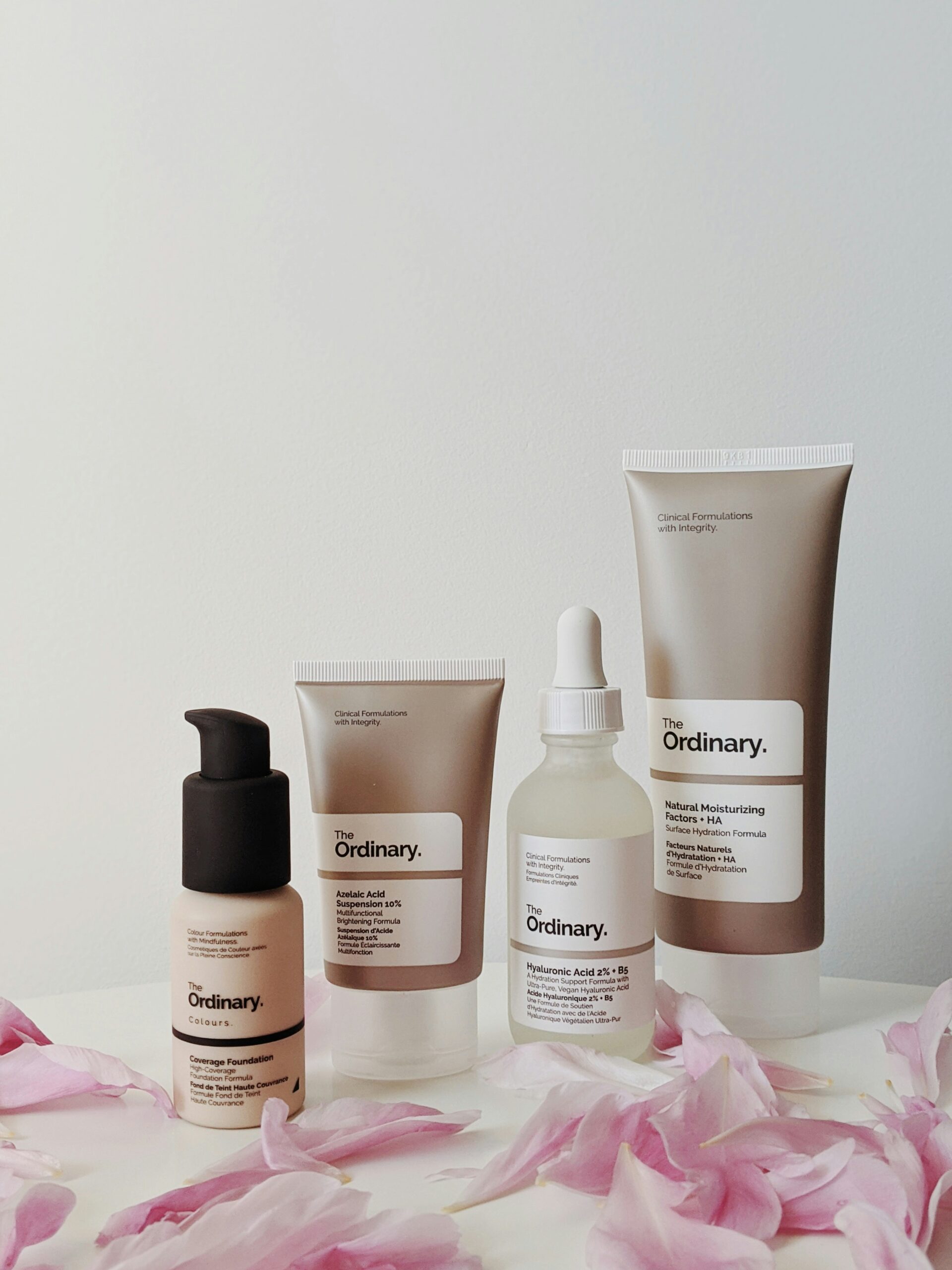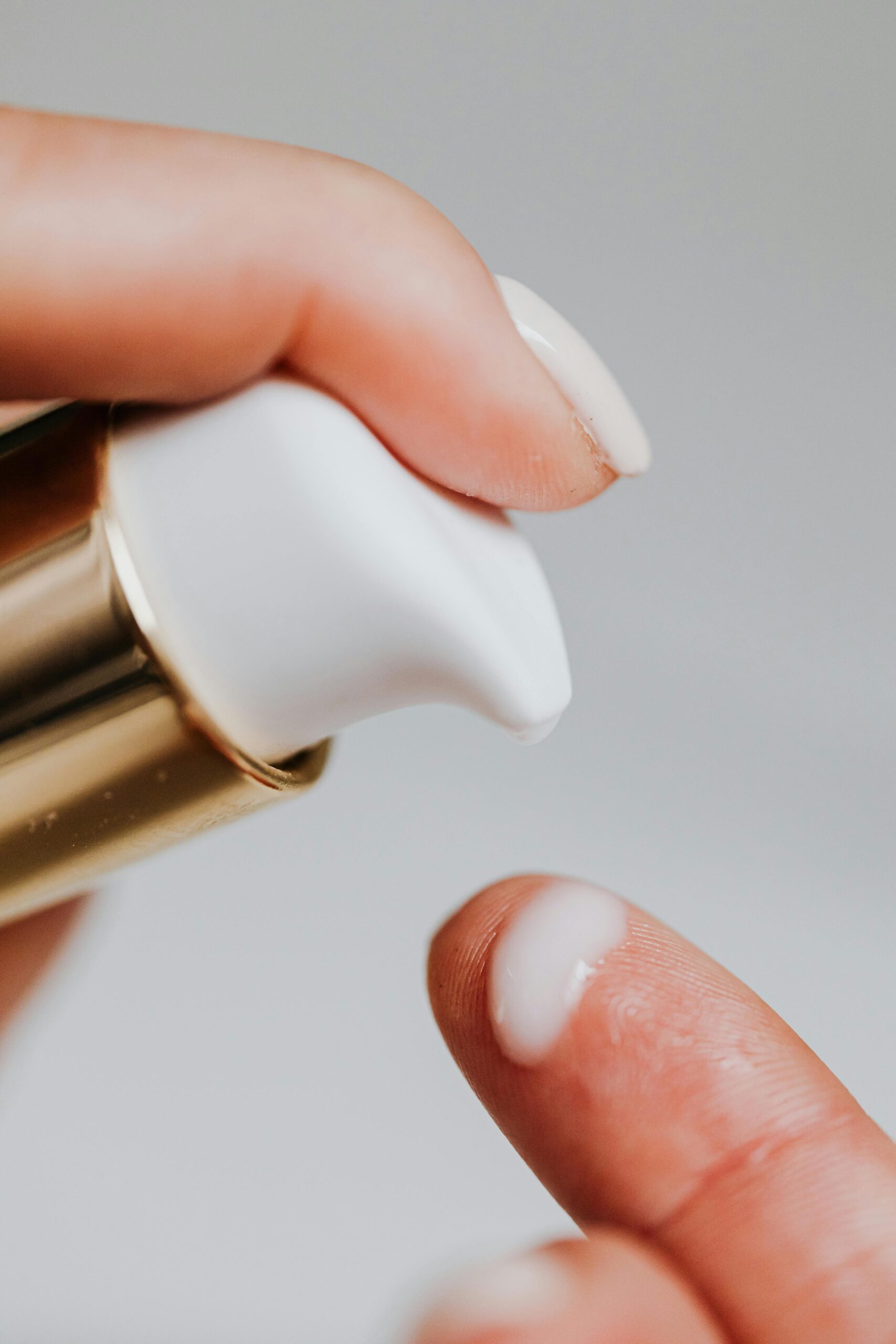Retinol, a derivative of vitamin A, is a crucial component in numerous skincare formulations. It is renowned for its capacity to enhance skin texture, diminish the visibility of fine lines and wrinkles, and promote a more youthful complexion. Retinol functions by accelerating cell turnover, which aids in the exfoliation of dead skin cells and encourages the growth of new, healthy skin cells.
This process can assist in unclogging pores, reducing the appearance of blemishes, and evening out skin tone. Moreover, retinol is a potent antioxidant, which means it can help safeguard the skin from environmental damage caused by free radicals. This can contribute to the prevention of premature ageing and maintain a youthful and radiant appearance.
Furthermore, studies have demonstrated that retinol stimulates the production of collagen, a vital protein that helps maintain skin firmness and suppleness. As one ages, the natural production of collagen decreases, leading to the formation of fine lines and wrinkles. By utilising retinol, one can potentially boost collagen production and preserve a more youthful appearance.
Summary
- Retinol is a form of vitamin A that helps to improve skin texture and tone by promoting cell turnover and collagen production.
- Using retinol can help reduce the appearance of fine lines, wrinkles, and hyperpigmentation, making it an effective anti-aging ingredient.
- There are different forms of retinol, including retinol, retinyl palmitate, and retinaldehyde, each with varying strengths and benefits for the skin.
- Potential side effects of using retinol include dryness, redness, and increased sensitivity to the sun, so it’s important to use it with caution and incorporate it gradually into your skincare routine.
- When using retinol, it’s crucial to always wear sunscreen during the day to protect your skin from sun damage and potential irritation.
How Retinol Works to Improve Skin Texture and Tone
Improving Skin Texture and Tone
One of the key ways that retinol improves skin texture and tone is by increasing cell turnover. This means that it helps to speed up the rate at which new skin cells are produced and old ones are shed. This can help to unclog pores, reduce the appearance of blemishes, and even out skin tone.
Boosting Collagen and Elastin Production
In addition to increasing cell turnover, retinol also stimulates the production of collagen and elastin, which are two proteins that are essential for maintaining the skin’s firmness and elasticity. By boosting the production of these proteins, retinol can help to reduce the appearance of fine lines and wrinkles, as well as improve overall skin texture.
Protecting the Skin from Environmental Damage
Furthermore, retinol is a powerful antioxidant, which means it can help to protect the skin from environmental damage and prevent premature aging. Overall, retinol works in several ways to improve skin texture and tone, making it a highly effective ingredient in skincare products.
The Benefits of Using Retinol for Anti-Aging
Retinol offers a wide range of benefits when it comes to anti-aging skincare. One of the key benefits of using retinol is its ability to reduce the appearance of fine lines and wrinkles. By stimulating collagen production and increasing cell turnover, retinol can help to smooth out the skin and diminish the signs of aging.
Additionally, retinol can also help to improve skin texture and tone, making the complexion appear more youthful and radiant. Another benefit of using retinol for anti-aging is its ability to promote a more even skin tone. Retinol can help to fade dark spots and hyperpigmentation, leading to a more uniform complexion.
Furthermore, retinol is a powerful antioxidant, which means it can help to protect the skin from environmental damage caused by free radicals. This can help to prevent premature aging and keep the skin looking youthful and healthy. Overall, retinol offers a wide range of benefits for anti-aging skincare, making it a popular choice for those looking to maintain a youthful complexion.
Understanding the Different Forms of Retinol and How to Use Them
There are several different forms of retinol available in skincare products, each with its own unique properties and benefits. One of the most common forms of retinol is retinyl palmitate, which is a gentle and stable form of retinol that is well-tolerated by most skin types. Retinyl palmitate is often recommended for those who are new to using retinol or have sensitive skin.
Another form of retinol is retinaldehyde, which is more potent than retinyl palmitate but less irritating than pure retinol. This makes it a good option for those looking for a balance between effectiveness and tolerability. Pure retinol is the most potent form of retinol available in skincare products.
While it can deliver powerful anti-aging benefits, it can also be more irritating to the skin, especially for those with sensitive skin. It is important to start with a lower concentration of pure retinol and gradually increase as your skin becomes accustomed to it. Additionally, there are prescription-strength retinoids, such as tretinoin, which are even more potent than pure retinol and are often used to treat more severe signs of aging.
These prescription-strength retinoids should be used under the guidance of a dermatologist.
Potential Side Effects and Precautions When Using Retinol
While retinol offers many benefits for the skin, it can also cause side effects if not used properly. One common side effect of using retinol is dryness and irritation, especially when first starting out with the ingredient. This can manifest as redness, flakiness, and peeling.
It is important to start with a lower concentration of retinol and gradually increase as your skin becomes accustomed to it. Additionally, it is important to use a moisturiser regularly when using retinol to help combat dryness. Another potential side effect of using retinol is increased sensitivity to the sun.
Retinol can make the skin more susceptible to sun damage, so it is important to use sunscreen daily when using retinol products. This can help to protect the skin from harmful UV rays and prevent further damage. Additionally, it is important to avoid using other potentially irritating skincare ingredients, such as exfoliants or harsh cleansers, when using retinol to minimise the risk of irritation.
Incorporating Retinol into Your Skincare Routine: Tips and Recommendations
Combating Dryness and Irritation
It is also important to use a moisturiser regularly when using retinol to help combat dryness and irritation.
Protecting Your Skin from the Sun
Additionally, it is essential to use sunscreen daily when using retinol products to protect the skin from sun damage.
Using Retinol Safely and Effectively
It is also important to avoid using other potentially irritating skincare ingredients when using retinol. This includes exfoliants, harsh cleansers, and other active ingredients such as benzoyl peroxide or salicylic acid. Using these ingredients in conjunction with retinol can increase the risk of dryness and irritation. Finally, it is essential to be patient when using retinol. It can take several weeks to see visible results, so consistency is key when using this ingredient.
The Importance of Sun Protection When Using Retinol
One of the most important aspects of using retinol in your skincare routine is sun protection. Retinol can make the skin more susceptible to sun damage, so it is crucial to use sunscreen daily when using retinol products. This can help to protect the skin from harmful UV rays and prevent further damage.
Look for a broad-spectrum sunscreen with an SPF of 30 or higher and apply it every morning as the last step in your skincare routine. In addition to using sunscreen, it is also important to take other sun protection measures when using retinol. This includes wearing protective clothing such as hats and sunglasses when outdoors, seeking shade during peak sun hours, and avoiding tanning beds.
By taking these sun protection measures, you can help to minimise the risk of sun damage while using retinol and maintain healthy, youthful-looking skin.
FAQs
What is retinol?
Retinol is a form of vitamin A that is commonly used in skincare products. It is known for its ability to improve the appearance of the skin and is often used to target signs of aging.
How does retinol work on the skin?
Retinol works by increasing cell turnover and stimulating collagen production in the skin. This can help to reduce the appearance of fine lines and wrinkles, improve skin texture, and even out skin tone.
What are the benefits of using retinol for the skin?
Some of the benefits of using retinol for the skin include reducing the appearance of fine lines and wrinkles, improving skin texture, and promoting a more even skin tone. It can also help to unclog pores and reduce the occurrence of acne.
Are there any side effects of using retinol?
Some people may experience mild irritation, redness, or peeling when first using retinol. It is important to start with a lower concentration and gradually increase usage to allow the skin to adjust. It is also important to use sunscreen when using retinol, as it can increase the skin’s sensitivity to the sun.
Who should use retinol?
Retinol is generally recommended for those who are concerned about signs of aging, such as fine lines and wrinkles, as well as those who have acne-prone skin. It is important to consult with a dermatologist before starting to use retinol, especially for those with sensitive skin or skin conditions.




